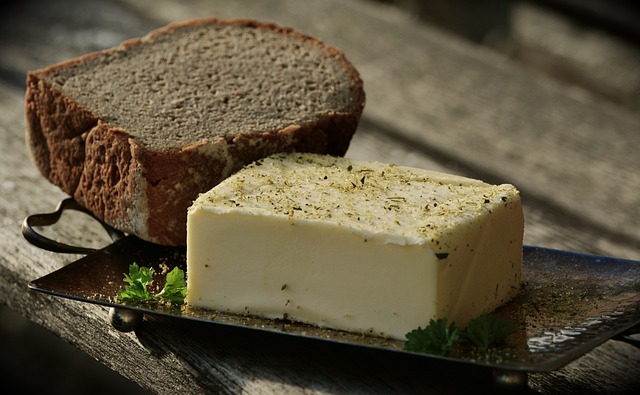Introduction
Butter often gets a bad rap, but what if I tell you that this creamy delight has some essential benefits? Yes, it’s not just a tasty spread for your toast! There are some surprising benefits in butter you won’t believe, and today we’re going to dive into the world of butter and discover the benefits of butter and try to figure out why this creamy delight should remain a part of your daily diet! So, what are we waiting for? Let’s jump into our today’s article all about the benefits of butter.

The Reasons Butter Should Be on Your Table
Butter, when especially sourced from grass fed cows, isn’t just adding some flavor, it’s about adding nutrition to your meals! Here’s a quick breakdown of the benefits of butter that you need to know:
1. A Natural Source of Healthy Fats
Not all fats are bad, despite what people believe. Butter is an amazing source of healthy saturated fats that provide energy and keep you feeling full longer. Additionally, butter contains (CLA) conjugated linoleic acid which can even be helpful in weight loss! Amazing! Isn’t it?
2. Rich in Fat Soluble Vitamins
You know butter is packed with vitamins including, A, D, E and K2. These vitamins are called fat soluble, which means they require fat to be absorbed properly by your body. You can maximize the benefits of these vitamins by using butter.
- Vitamin K2: Helps maintain bone and heart health by activating proteins that regulate calcium.
- Vitamin A: Improves eye health and immune function.
- Vitamin D: This vitamin strengthens your bones and mental well being.
3. Boosts Flavor Without Compromising on Health
Have you ever thought that the steak that restaurants make why tastes so much better? Cause of Butter! Butter is like a taste enhancer, and also you don’t need a lot to make a big impact. A small pat of butter can turn a dull dish into a mouthwatering one. Now, that’s one of the tastiest benefits of butter!

How You Can Add More Butter to Your Diet?
Now, that I’ve told you all the benefits of butter, are you ready to embrace butter in your daily diet? Here are some easy ways to add butter to your daily meals:
- Cook with it for a buttery sear on meats or fish.
- Spread it on whole grain toast for a morning boost.
- Stir it into soups or sauces for a creamy, rich texture.
- Melt it over steamed veggies for a delicious side dish.
You don’t have to eat a lot of it, just sneak in a little here and a little there!
Conclusion
The benefits of butter go beyond just taste! From gut health to essential vitamins, butter can be a delicious and fantastic addition to a balanced diet when consumed mindfully. So, next time if someone gives you a side eye for adding butter to your plate, you can confidently say you’re doing it for the benefits of butter! Spread the world!
So, that’s it for our today’s article if you find anything helpful or enjoyable in this article make sure to leave a like and comment it motivates us and it is free! Also, you can visit our website and follow our social media accounts for more amazing content on Health, Fitness and Nature. See you with the next one! Good Bye!
FAQ’s
How Much Should We Consume Butter?
Moderation is key! You can enjoy butter in small amounts, like a tablespoon or two a day. way, you will get the benefits of butter without overdoing it.
Is butter bad for my heart?
Not at all! When consumed in moderation, butter, especially from grass fed cows, can support heart health due to its rich omega 3 and omega 6 fatty acid content.
Can butter help with digestion?
Surprisingly, yes! Butter contains butyrate, a short chain fatty acid that promotes gut health and reduces inflammation.

Disclaimer
The information provided in this article is for general informational purposes only and is not intended as medical or dietary advice. While butter can offer certain health benefits, it is important to consume it in moderation as part of a balanced diet. Individual nutritional needs and health conditions vary, so please consult with a healthcare professional or a registered dietitian before making any significant changes to your diet. The claims made in this article are based on general knowledge and should not be taken as a substitute for professional advice.

